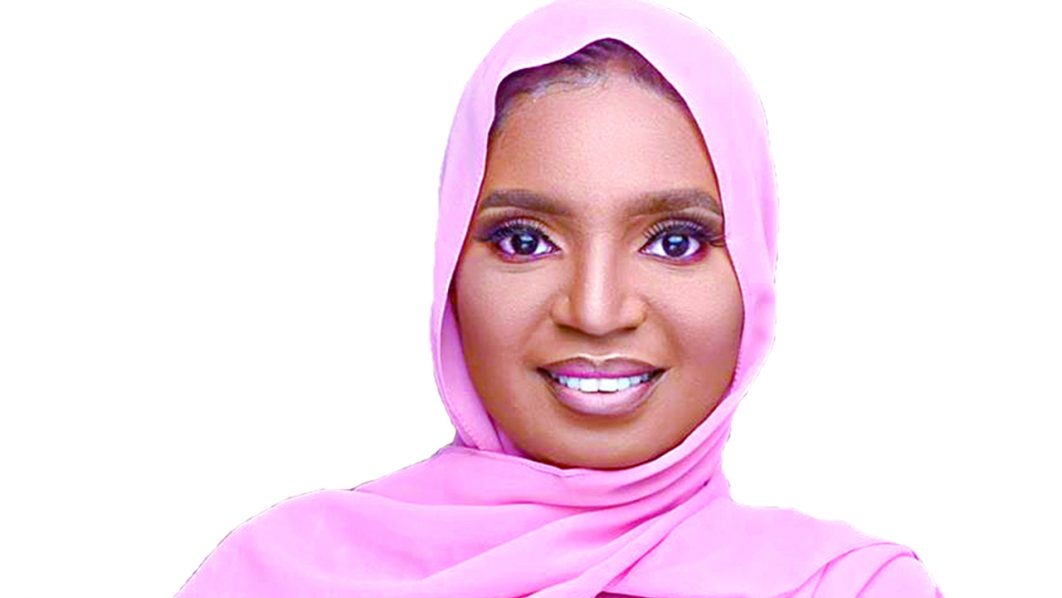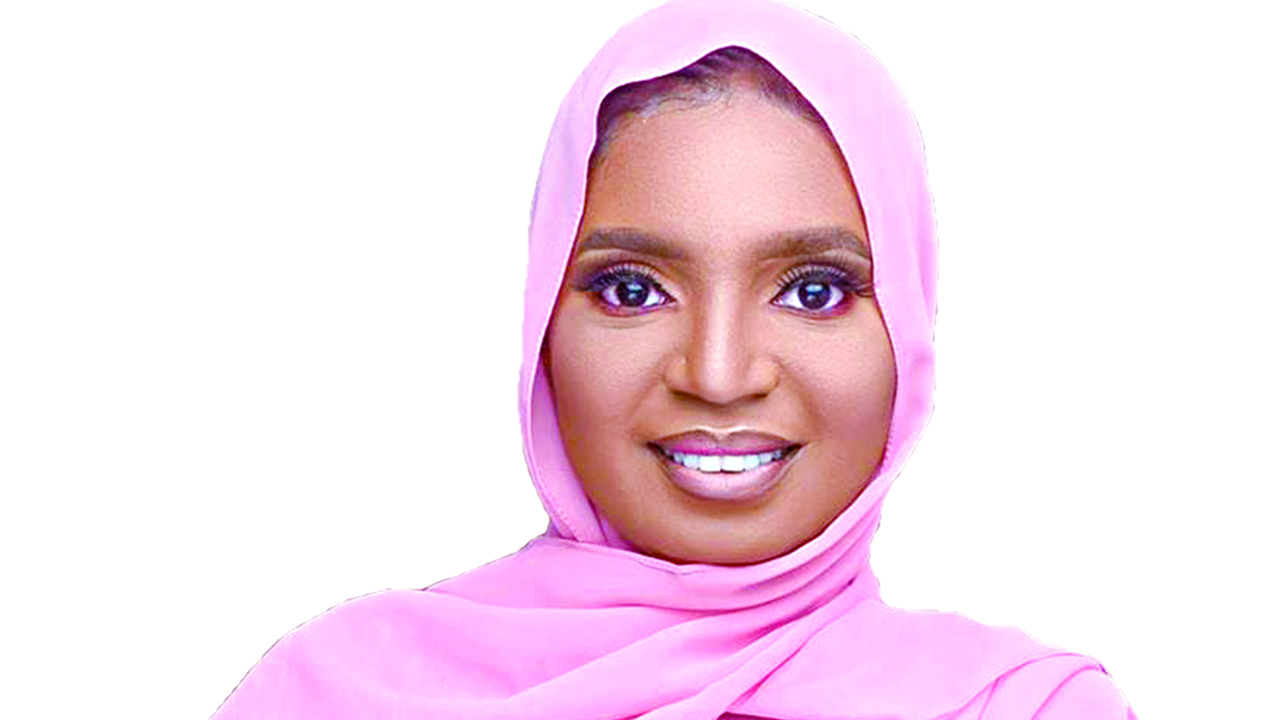
With her expertise in Rational Emotive Behaviour Therapy, Cognitive Behavioural Therapy, Rogerian Therapy and Relapse Prevention, she works with couples and couples-to-be, building healthy marital relationships. She also provides mental health services to individuals struggling with stress and anger management, trauma; self-esteem related issues, family relationship/infertility issues and drug dependency among adolescents.
[ad]
A volunteer at Bagit, a mental health non-governmental organisation that provides mental health services to Nigerians, Maryam spoke to IJEOMA THOMAS-ODIA on her passion for building healthy relationships among other issues.
Take us through your journey and passion for mental health?
AFTER my bachelor’s degree in 2010, I started practicing as a school counsellor and a volunteer at an HIV patient care organisation. My listening skills and therapeutic approach to marital relationships of family and friends got everyone around to confide in me or recommend me to someone for guidance.
I decided to go ahead and get my masters degree so I can become a professional. In 2017, I got my master’s degree in guidance and counselling. As a young girl in high school, I was known for being a good listener; I always wanted to make people feel better. Later, I realised I had concern for peoples’ mental health; I would always pay attention to the mood of people around me.
[ad]
As a guidance counsellor focused on strengthening marital relationships, what exactly does the job entail?
This entails premarital counselling before the marriage so couples are certain; their values align, they are compatible and they are equipped with tools to guide them in healthy communication, compromise, financial management, self-awareness, accountability and the likes. In my years of experience, I realised having premarital counseling has the potential to help couples navigate the first few years of their marriage successfully.
We also have the strengthening marital relationship programme, which equips couples with skills in encouraging good behaviour, conflict resolution and building emotional intimacy. Couples usually relax after the wedding when it comes to nurturing each other’s emotional tank. This is a huge mistake, as marriage itself does not have the tendency to make you care for one another or stay committed to one another. Rather, your personal effort and intentionality help to keep your marriage together.
We also have individual therapy where you can unleash bottled up emotions, take difficult decisions, de-stress, seek an objective perspective etc. and therapy for couples coping with infertility.
[ad]
In your years of practice, what do you consider a major concern around marriages, especially in the north?
A major concern, especially in the north, is pressure from society to get people married. This pressure is mounted especially on ladies, and then parents and then the groom-to-be. Because of this pressure, people end up marrying for the wrong reasons.
Another concern is unrealistic expectations; a man walks into a marriage hoping to get a wife who plays the traditional roles. Unfortunately, the level of awareness now hinders a woman from being a traditional wife; people are more aware of their rights, their roles and responsibilities.
What is your take on girl child marriage, are you also helping girls in such marriages find purpose?
I believe marriage should be between two adults who have found themselves, so they can think and act on the same level. I believe young girls should be allowed to figure out who they are; what their purpose is, what marriage is before they are allowed to get married.
[ad]
What I do with young girls who come to me is first to help them figure out who they are and what their purpose is. I have worked with a lot of young girls whose dreams have been crushed as a result of marriage. Because of their naivety, they choose spouses whose values don’t align with theirs and later in the marriage, they feel trapped, get depressed or even go as far as using illicit drugs to feel better.
From a professional point of view, what is solely responsible for depression?
Depression mostly is caused when your thought and feelings are invalidated; when you feel no one understands you or what you are going through. Remember in our part of the country, on your wedding day, elder’s advice you to keep the secret of your home; that everyone is going through one thing or the other in their marriage and they are not complaining. So, you should also learn to be patient. For most people, bottling up all that they are going through makes them withdrawn from loved ones, which can lead to depression.
Another cause of depression in marriage is when you finally talk to loved ones about your concerns towards your partner and they invalidate it (they do this mostly from the place of love, so the issue does not escalate, so they say things like that’s how marriage is, keep persevering) that can also lead to depression.
[ad]
From your activities, do you think more people are speaking out and seeking help?
People are more aware of their mental health, especially among women, but seeking help is where they become hesitant for fear of judgement and stigmatisation. As members of society, we have to normalise encouraging our loved ones to seek professional help to maintain their mental wellness. We are a supportive society that has a culture of advising people, but the reality is sometimes, we don’t give good advice; we don’t have the right training to do that. Men should also be encouraged to speak up and seek help; their mental wellness also matters.
Drug and substance abuse has been a major menace in our society, what in your opinion is responsible and how can these be curbed?
Drug and substance abuse is a coping mechanism for a lot of individuals to escape their realities. Married men and women resort to sleeping pills when their marriages have become toxic; women turn to sexual stimulants drugs or aphrodisiac to help them build a better relationship with their spouse. Some of these sexual stimulants have harmful addictive ingredients.
For children, they are supposed to fulfil their need for love, acceptance, belonging in the home. In a situation where the home is unstable, a parent having a toxic or violent relationship, the child is forced to seek from friends or strangers who can initiate them into misuse of drugs and another societal menace.
[ad]
To curb the issue of drug abuse in society, our homes have to be a safe space where everyone’s need for love, affection, belonging and acceptance is met. We can achieve this through marital education.
What are some of the triggers of depression especially for women?
Societal pressure to get married, have children, stay married despite the circumstance in the marriage, have a perfect life, unsupportive spouses, stress of family and career balance. The society placed this unrealistic burden on women and so women feel inadequate if they are unable to meet up societal expectations. This can be unlearned through self-knowledge, self-acceptance and self-love.
Also, as members of society ourselves, we should learn to allow people to live their lives the way they want to; we should learn to stop prying, asking unnecessary questions about women’s private lives. This will help reduce the pressure drastically.
[ad]
Tell us a bit about growing up and how it has influenced your work?
I grew up in a polygamous home to a great dad and a loving mum, but I learnt a lot of lessons from some of the mistakes in my parents’ marriage. Also, I realised in my community, marriage is done for the wrong reasons. As such, the marriages don’t last. I see a man who is ready to get married look for a ‘marriage material’ wife to get married to; this wife might not have the same values with him, the same way the wife might behave such a way to portray herself as the marriage material, because all her friends are getting married and she also wants to settle down. She gets married to this man and after the marriage, they realise they are not compatible, because they both married for the wrong reasons.
In your years of practice, what do you consider issues women face that affect their mental health?
Women face issues like shaming in cases of infertility where they get more heat than their partner. In the case of polygamy also, women blame themselves sometimes when their spouses decide to take in another wife; they feel they are not good enough and that’s why the husbands decide to take in another wife. Women should understand that in Islam, polygyny is acceptable and as a woman, the decision of your man to get married to another woman has got nothing to do with you.
[ad]
Women also encounter challenges of unsupportive spouses and this can shatter their dreams and aspiration, which can, in turn, affect their mental wellness. Again, a woman has to put up with a cheating spouse, because society does not hold him accountable. This also affects the mental health of women.
What endeared you to offering therapeutic solutions?
In the early months of my marriage, even with my background as a professional counselor, I struggled. The strengthening families’ relationship course I took saved my marriage alongside therapy. I realised if it can save my marriage, it can save other marriages. It has always been my dream to see women winning and fully represented in all spares of life. Unfortunately, I have seen around me were a lot of women loose who they were because of a bad marriage. For instance, as Muslims we need the permission of our husbands before going out, in a situation where you are still in school or working and you have a bad relationship with your husband, he can prohibit you from going to school or working and that can be the end of your schooling or career.
I realised that with the right marital education couples, can learn how to resolve and manage their conflicts amicably or express their hurt in a healthy way. This has worked for me and so many of my clients.
[ad]
With the many hats you wear, how do you combine them with family life?
It wasn’t easy for me at the beginning of my marriage, but I took the strengthening families’ relationship programme and my life changed. I used that and therapy to encourage my husband and me to be the biggest supports for one another, and thank God we have worked hard as a couple to achieve our current relationship. We are still working on being the biggest support system for each other. So, I will say my husband supports me 100 per cent. I am also very intentional about creating quality family time.
What advice do you have, especially for women who are faced with the challenges of living purposeful lives and being successful in their careers?
I will say figure out who you are and what your purpose is; find a non-judgmental person to confide in. Seek therapy, and stay focused. Know who you are and what you need before getting married. If you are already married, while investing in your home, your husband and your kids, don’t forget to invest in yourself. Be easy on yourself and keep going, eventually, it gets better.
[ad]



